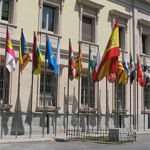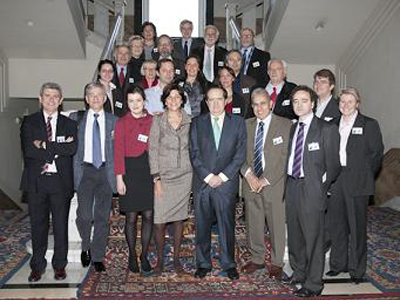
Citizens’ Participation to Public Life through the Media: November 25th and 26th, 2009
Democracy is unthinkable without an open public space, without information for everybody interested and possibilities to interact. New media offer completely new possibilities for information and interaction. Do they thus have the potential to support and strengthen democracy? And if so, what does a positive impact depend on?These were the questions discussed during the panel “Active citizenship and participation through the media”, which was moderated by the chairman of Citizens of Europe, Frank Burgdörfer. The panel was part of the 3rd international conference of the European Association for Viewers Interest (EAVI). It took place in the house of the Spanish Senate in Madrid on 25/26 November. In his opening keynote, Paolo Celot, secretary general of EAVI, identified a growing gap between public interest and government interest. Closing this gap was the responsibility of European Citizens, who would need to develop new procedures and instruments in order to achieve it. In Celot’s point of view, “new media have the potential to make the world a better place”.

Fiona Lennox from Ofcom, the independent regulator and competition authority for the UK communications industries, was presenting empiric data regarding the question whether new media have the potential to strengthen participation and thus democracy. Her results clearly were showing that there is not necessarily a positive interrelation. Whether people feel empowered and act accordingly depends on the respective social and educational background. It all depends on media literacy: Those who are able to use new media see and realise new potential. Those who are not perceive it as a threat and a new way of exclusion. Marco Ricceri, secretary general of the Istituto di Studi Politici Economici e Sociali (Eurispes), critically reflected on the question whether new media mean an improvement. In his point of view, they bring on the one hand new freedom, which is on the other paid by less democracy. As media tended to be dominated by business interest, he argued in favour of public European broadcasting structures. His statements reflected a kind of disillusioning regarding the potential and the sustainability of grass root initiatives online. Juan Carlos Gavara, professor of constitutional law at Barcelona University, argued in the same direction. The concept of ‘liberal citizenship’ in his point of view is being replaced by ‘new republican citizenship’. The state had to protect the freedom of each individual and to guarantee transparency and access to media. The broad variety of the opinions represented on the panel could also be observed during the following audience discussion.
